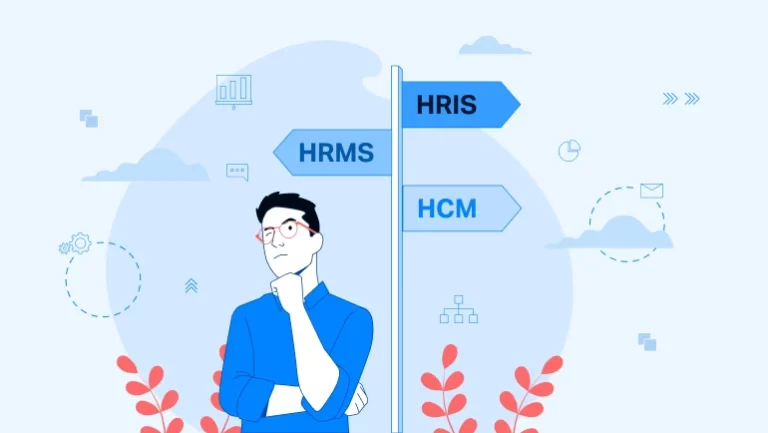As businesses grow and expand, managing employee data becomes increasingly complex. This is where HR platforms come in. HR platforms are software systems designed to streamline HR processes, from recruitment and onboarding to payroll and performance management.
Two popular HR platforms are HRMS and HRIS. But what are they, and which one is best for your business?
What is HRMS?
HRMS stands for Human Resource Management System. It is an all-in-one HR platform that integrates multiple HR functions, such as recruiting, onboarding, payroll, benefits administration, and performance management. HRMS is typically used by larger organisations with complex HR needs.
What is HRIS?
HRIS stands for Human Resource Information System. It is a software system that manages employee data, such as personal information, job history, and performance records. HRIS is typically used by smaller organisations with simpler HR needs.
HRMS vs. HRIS: Key Differences
- Scope of Functionality
The main difference between HRMS and HRIS is the scope of functionality. HRMS is a more comprehensive platform that covers all aspects of HR, while HRIS is a more focused platform that covers specific HR functions.
- Scalability
HRMS is designed for larger organisations with complex HR needs, while HRIS is designed for smaller organisations with simpler HR needs. As a result, HRMS is more scalable than HRIS and can handle a larger volume of data and users.
- Customisation
HRMS is more customisable than HRIS and can be tailored to meet the specific needs of an organisation. HRIS, on the other hand, is a more standardised platform that offers limited customization options.
- Cost
HRMS is typically more expensive than HRIS due to its comprehensive functionality and scalability. HRIS, on the other hand, is more affordable and is often priced on a per-user or per-month basis.
HRMS vs. HRIS: Pros and Cons
HRMS Pros:
- Comprehensive HR platform that covers all HR functions
- Scalable system that can grow with your business
- Robust reporting and analytics capabilities
- Customisable to meet specific business needs
HRMS Cons:
- Expensive compared to HRIS
- Complex system that requires training and expertise to use effectively
- Overkill for smaller organisations with simpler HR needs
HRIS Pros:
- Affordable compared to HRMS
- Simple and easy to use
- Ideal for smaller organisations with basic HR needs
- Can be integrated with other HR platforms, such as payroll systems
HRIS Cons:
- Limited functionality compared to HRMS
- May not be suitable for larger organisations with complex HR needs
- Limited reporting and analytics capabilities
Which Platform is Best for Your Business?
The answer to this question depends on the size and complexity of your business. If you are a small business with basic HR needs, then HRIS may be the best option for you. It is affordable, easy to use, and can help you manage employee data effectively.
However, if you are a larger organisation with complex HR needs, then HRMS may be the better option. It offers a comprehensive HR platform that can help you manage all aspects of HR, from recruitment to performance management. It also offers robust reporting and analytics capabilities that can help you make data-driven decisions.
It’s important to note that both HRMS and HRIS platforms can be customised to meet the specific needs of your business. Thus, it’s essential to evaluate your business needs and goals before choosing a platform. You may also want to consider the cost of each platform, as HRMS can be more expensive than HRIS.
Conclusion
HRMS and HRIS are both valuable platforms for managing HR processes. HRMS is ideal for larger organisations with complex HR needs, while HRIS is ideal for smaller organisations with basic HR needs. It’s essential to evaluate your business needs and goals before choosing a platform. You may also want to consider the cost of each platform and whether it can be customised to meet your specific needs.
Ultimately, the right HR platform can help you manage employee data effectively, streamline HR processes, and make data-driven decisions. So, take the time to evaluate your options and choose the platform that’s best for your business.


Comments are closed.